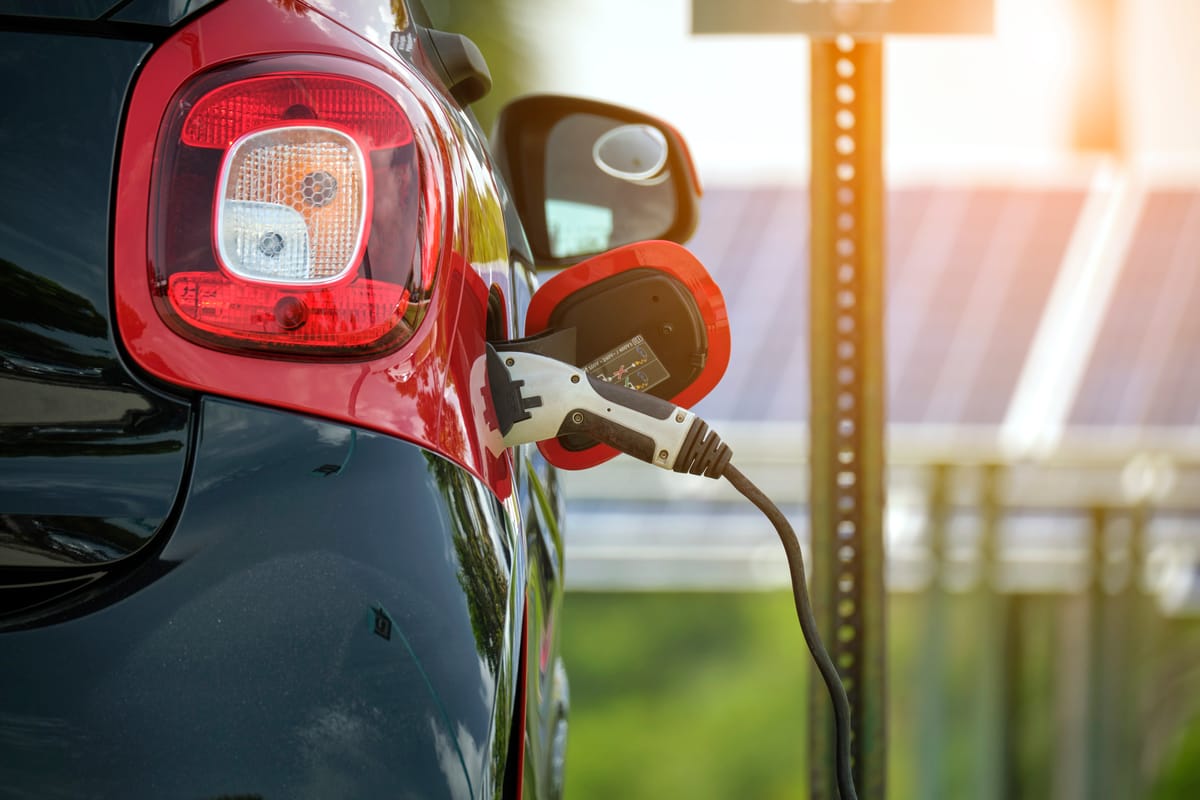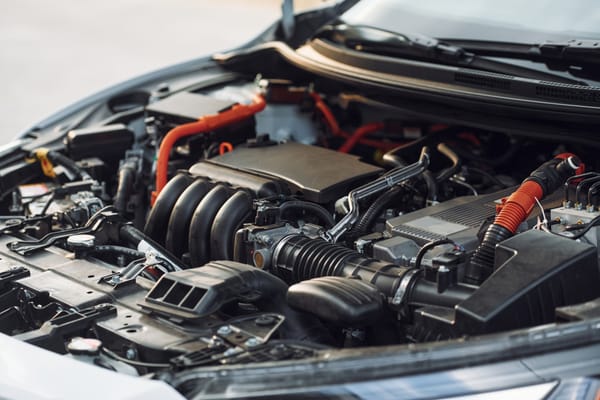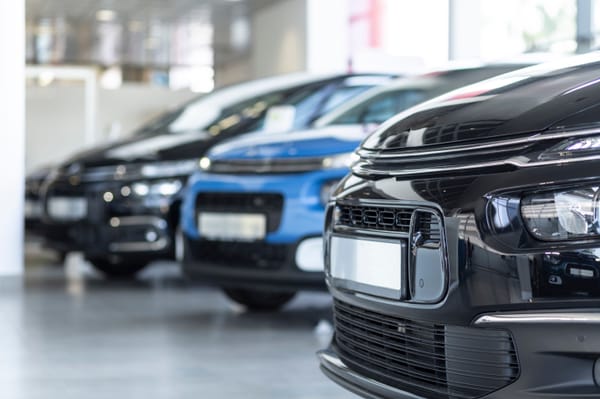The Rise of Hybrid Cars in Kenya: Are They Worth It?

Close to 4,000 electric vehicles or EVs exist among 2.2 million registered vehicles in Kenya, yet hybrid cars show a steady rise in our automotive world. The numbers may look small, but these vehicles have gained real momentum since 2010. They serve as a practical bridge between regular and fully electric cars.
The choice between hybrid and conventional vehicles needs careful thought. Fuel savings look attractive, but higher insurance costs and future battery replacements matter too. This Peach Cars piece will help you learn about whether hybrid cars make sense for Kenyan drivers.
Understanding Hybrid Cars and Their Growing Popularity in Kenya
Hybrid cars have become a major part of Kenya's automotive industry. These vehicles combine two power sources: a traditional internal combustion engine and an electric motor powered by a rechargeable battery. The car switches between power sources based on driving conditions, which leads to improved fuel efficiency and lower emissions.
The country saw a 108% increase in electric and hybrid vehicle sales during the 2022-2023 financial year, which represented 8.3% of the new vehicle market share. These numbers show how Kenyans are moving toward green transportation options.
Many factors explain why people prefer hybrid vehicles. Fuel economy stands out as the main reason. A dealer explained it well: "Most people right now because of fuel prices are interested in hybrids because they use less fuel".
Urban areas like Nairobi benefit greatly from this advantage, especially with their frequent stop-and-go traffic.
Kenyan drivers can choose from three main hybrid types:
- Full hybrids like the Honda Vezel can run on electric power alone, the engine, or both
- Mild hybrids such as the Suzuki Swift use a small electric motor to assist the engine
- Plug-in hybrids including the Mitsubishi Outlander PHEV offer longer electric-only ranges
Toyota Prius and Toyota Aqua lead the popular hybrid models in Kenya, along with Honda Fit and Vezel, and various Nissan options. These vehicles excel in Nairobi's congested streets because they know how to switch to electric power at low speeds for maximum efficiency.
The Kenyan government has made hybrid ownership more appealing through tax incentives for hybrid and electric vehicles. These incentives help offset their higher original cost compared to conventional vehicles.
The Real Costs of Owning a Hybrid Car in Kenya
Buying a hybrid vehicle in Kenya involves more than just the price tag. These vehicles cost between Ksh200,000 to Ksh300,000 more than regular cars. This extra cost comes from the advanced dual-power technology that helps save fuel.
Battery replacement stands out as a major cost factor. Manufacturers usually give an eight-year warranty or coverage between 160,000km to 200,000km. The owner pays for replacements after the warranty runs out, and these costs vary by a lot.
- A Toyota Prius battery replacement ranges from Ksh200,000 to Ksh500,000.
- Other models might set you back between Ksh90,000 and Ksh130,000.
- Battery repairs aren't cheap either - expect to pay Ksh30,000 to Ksh70,000 based on damage and model type.
Worth noting is that the battery's health declines over time. This happens through a natural chemical process called dendrite formation, which creates crystals inside the battery. Problems often start within the first eight years, especially when the battery cooling system fails - which is typically the time when they are being imported to Kenya.
Service costs add another layer of expense as qualified mechanics for hybrid cars are fewer than traditional car mechanics. This means higher maintenance costs, in some instances, and possibly longer waiting times compared to regular cars.
The car's future value presents mixed signals. Some reports show hybrids keep their value well with proper care. Others suggest their value drops sharply, especially as they reach 150,000 to 200,000 kilometres when the battery needs replacement.
But what do you know? These cars shine in day-to-day use with impressive efficiency. They give you 20 to 35 kilometres per litre depending on model and driving conditions. This benefit matters more with Kenya's unpredictable fuel prices.
Practical Challenges of Hybrid Ownership in Kenya: Are They Worth It?
Owning a hybrid in Kenya comes with several practical challenges beyond just money matters. These challenges include:
- Qualified Mechanics: The biggest challenge for hybrid owners is finding qualified mechanics, especially outside urban centres. Most traditional technicians aren’t fully qualified to repair hybrid systems. This knowledge gap means you'll wait longer for repairs and likely pay more.
- Not the best for long-distance driving (although this is subjective): Hybrid cars shine in city driving but lose their edge on highways. The petrol engine kicks in once you hit speeds above 60km/hr. This cuts into fuel savings during long trips.
- Your driving habits. Running on an empty fuel tank is bad news because it makes the battery work overtime, wearing it out faster. The evaporative emissions system often gives trouble too, and fixing it can set you back up to Ksh90,000.
- Insurance costs. These add another wrinkle to ownership costs. Insurance companies charge more for hybrids because repair costs after accidents or breakdowns are ridiculously high.
Despite these challenges, hybrids still make sense for city commuters, environmentally conscious drivers, and people looking to save fuel money in the long run. The value of a hybrid car in Kenya depends on your driving patterns, how close you live to specialised service centres, and whether you can handle potentially higher maintenance costs.
So, Are Hybrid Cars in Kenya Worth It?
The answer depends on your priorities. If you’re looking for long-term fuel savings and want to reduce your carbon footprint, hybrids are an excellent choice. However, it’s important to consider potential maintenance costs and ensure you’re buying from a trusted dealer with low-mileage options.
Ready to Make the Switch?
At Peach Cars, we make owning a hybrid car simple and stress-free. Our transparent pricing, quality checks allow us to give you only the best deals on some of the most popular brands. A few quick options include:
- LEXUS RX 2009 - Ksh 2,052,000
- TOYOTA Aqua Hybrid 2017 - Ksh 1,495,000
- SUBARU XV 2014 - Ksh 1,450,000
- HONDA Odyssey 2017 - Ksh 2,280,000
Explore our range of hybrid cars and join Kenya’s green mobility revolution today!
Sources:
Electric vehicle figures: https://www.epra.go.ke/sites/default/files/2025-02/EPRA%20Statistics%20Report%20-%20January%20-%20December%202023.pdf




